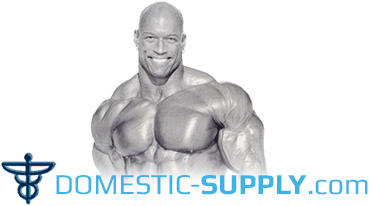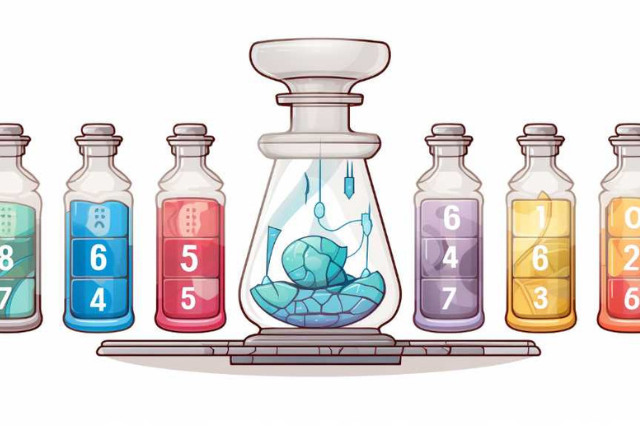Say 'No' to Pecs: The Dark Side of Steroids
Say 'No' to Pecs: The Dark Side of Steroids is a comprehensive exploration into the perilous allure of anabolic steroids, a shortcut often adopted by individuals seeking rapid muscle gain. This piece delves into the immediate gratification steroids offer, juxtaposed against the grave long-term physical, psychological, and societal repercussions. Examining real-life narratives of those ensnared in steroid abuse, as well as the societal pressures contributing to this phenomenon, the discussion ultimately presents healthier, sustainable alternatives to steroids. This work aims to shed light on the hidden dangers of steroid use, fostering a more informed and responsible approach to body image and physical fitness.
Key Takeaways
- Steroid use can lead to severe health consequences, including liver damage, cardiovascular disease, and mental health disorders.
- Societal pressure and media representations of the 'perfect body' contribute to the normalization of steroid use.
- Natural methods of achieving physical goals, such as a balanced diet and effective exercise routines, are safer alternatives to steroids.
- Real stories of individuals who have suffered from steroid abuse highlight the irreversible damage and life-altering consequences of using these drugs.
Understanding Steroid Use
A significant number of people, particularly athletes and bodybuilders, succumb to the allure of anabolic steroids without fully comprehending the potential adverse effects on their health. This desire to enhance performance or achieve a certain physical image can often cloud their judgment, causing them to overlook the potential health risks associated with these substances.
Anabolic steroids, or anabolic-androgenic steroids (AAS), are synthetically produced versions of the naturally occurring male hormone testosterone. They have been utilized by many athletes and bodybuilders due to their ability to stimulate muscle growth and improve athletic performance. However, this is not without cost.
The misuse of these substances can lead to a plethora of health complications, some of which are irreversible. They range from physical effects such as liver damage, cardiovascular disease, and severe acne to psychological issues like increased aggression, mood swings, and even addiction. Furthermore, there is the danger of sharing needles, which can lead to the transmission of infectious diseases like HIV and Hepatitis.
Despite the potential risks, the use of anabolic steroids continues to be rampant. This is mostly due to the lack of awareness and understanding of the severe implications that these substances can have on one's health. Therefore, it is crucial to educate people, particularly those in the athletic and bodybuilding communities, about the dangers associated with steroid use. By doing so, we can promote a culture of health and safety, encouraging individuals to opt for natural and safer methods of achieving their desired physical and performance goals.
The Allure of Quick Results
While the promise of rapid muscle gain and enhanced performance can be enticing, it often obscures the serious health risks associated with anabolic steroid use. Our society is saturated with images of muscular, attractive individuals, reinforcing the idea that a chiseled physique equates to success and admiration. These images, coupled with the allure of quick results, can make anabolic steroids seem like a fast track to achieving the desired body image.
However, it is vital to look beyond the surface and understand the potentially severe consequences of such decisions. Steroids disrupt the natural balance of hormones in the body, leading to a host of health complications. These range from acne and hair loss to more serious conditions like heart disease, liver damage, and even mental health problems such as depression and aggression.
The desire for quick results can be powerful, but it is crucial to remember that true fitness is not achieved overnight. It requires dedication, hard work, and a balanced diet. Steroids might offer immediate gratification, but they also bring about long-term damage that far outweighs any short-term gains.
Long-term Health Consequences
Delving into the long-term health consequences of steroid use, it becomes alarmingly clear that these substances can inflict irreversible damage on the body. The promise of rapid muscle gains and improved performance can blind users to the health risks that arise with prolonged use. It is thus critical to understand and consider these implications before opting for such performance-enhancing substances.
There are numerous severe health risks associated with chronic steroid use including:
- Cardiovascular Complications: Steroids can increase the risk of heart disease and stroke by escalating blood pressure and cholesterol levels. This arterial damage can cause a heart attack, even in young and seemingly healthy individuals.
- Liver Damage: Steroids are toxic to the liver and can lead to a condition called cholestasis where bile flow is impaired, causing jaundice, itching, and potentially irreversible liver damage.
- Psychological Effects: Steroids can induce mood swings, aggression, and symptoms of depression. In some cases, users have reported experiencing hallucinations and delusions.
- Hormonal Imbalance: Steroid use disrupts the natural balance of hormones in the body, leading to problems like testicular shrinkage in men, and deepening of the voice and facial hair growth in women.
It is incumbent upon each individual to weigh these risks against the allure of quick muscular gains. Beyond the temporary enhancements steroids offer, the long-term health consequences are grave and enduring. We must promote natural, safe, and sustainable methods for achieving physical fitness and strength. Say 'No' to Pecs: The Dark Side of Steroids is not just a slogan, but a call to safeguard our health and wellbeing.
Steroids and Mental Health
Turning to the impact of steroids on mental health, it is crucial to note that these substances can precipitate severe psychological disturbances, adversely affecting an individual's emotional stability and cognitive functions. Steroids can be a catalyst for mood swings, anxiety, hallucinations, and even severe depression. They can also induce feelings of paranoia, impair judgment, and provoke aggressive behavior, commonly referred to as 'roid rage.'
Evidence from various studies and clinical observations has established a direct relationship between steroid abuse and mental health disorders. Prolonged use of these substances can lead to an increased risk of psychiatric complications. For instance, according to a study published in the Journal of Clinical Psychiatry, steroid users were found to be significantly more susceptible to mood disorders compared to non-users.
Furthermore, the cognitive impairment caused by steroids is not to be overlooked. Studies show that long-term steroid use can lead to poor concentration, memory loss, and decreased mental agility. This decline in cognitive function may not only interfere with everyday activities but can also impact an individual's professional life.
The Slippery Slope to Addiction
Beyond the grievous impact on mental health, the use of steroids often sets individuals on a perilous path to addiction. This addiction is not limited to the physical dependency on the drug, but also extends to an emotional and psychological addiction, where users are drawn to the perceived benefits and transformation steroids provide.
This addiction journey is a slippery slope that can be broken down into 4 stages:
- Trial Use: Individuals may begin using steroids out of curiosity, peer pressure, or a desire to enhance their physical appearance and performance. This initial stage is often characterized by a lack of understanding about the potential dangers of steroid use.
- Regular Use: As individuals continue to use steroids, they start to become reliant on the drug to maintain their physical appearance or performance levels. This stage often involves an increase in dosage and frequency.
- Risky Use: As addiction deepens, users start to disregard the obvious health risks and warnings. They may start to experience physical and mental health issues, but continue their steroid use, believing the benefits outweigh the risks.
- Dependence and Addiction: At this final stage, users find it nearly impossible to stop using steroids, despite the negative impact on their health, relationships, and overall quality of life. This dependence can lead to a host of health issues, including liver damage, heart disease, and mental health disorders.
Societal Pressure and Body Image
One significant factor that often catalyzes steroid use is the intense societal pressure and the skewed perception of body image, which can fuel the initial trial use and accelerate the journey towards addiction. The modern culture, heavily influenced by media representation, often propagates an unrealistic and potentially harmful ideal of physical perfection. This, coupled with the incessant societal pressure to conform to these standards, can drive individuals to resort to steroid use as a means to achieve the desired physique quickly.
The portrayal of a 'perfect body' in popular culture, including film, television, and social media, often features muscular figures that are hard to attain naturally. This can give rise to body dissatisfaction and the feeling of inadequacy, which may drive some individuals to use steroids. It is important to note that these representations are often misleading, as they seldom highlight the risks associated with the use of performance-enhancing drugs.
Furthermore, the societal notion that muscular bodies equate to success and attractiveness can contribute to the normalization of steroid use. This misconception has potentially dangerous consequences, including the risk of addiction, physical harm, and a distortion of body image perception.
Real Stories: Victims of Steroids
While societal pressure and distorted body image significantly contribute to steroid use, the dark reality of this dangerous pursuit comes to light when we delve into the real stories of victims of steroids. These narratives are not just cautionary tales, but a harsh reminder of the irreversible damage steroids can inflict on the human body.
- John, a former bodybuilder, experienced a heart attack at 35, a direct result of years of steroid abuse. Despite his youthful age, his heart was comparable to that of an 80-year-old man.
- Samantha, an aspiring model, turned to steroids to lose weight and enhance her appearance. She developed severe acne, lost her hair, and her menstrual cycle became irregular. The physical changes were so drastic that she fell into deep depression.
- Mike, a high school athlete, used steroids to increase his performance. He developed 'Roid Rage', a term used to describe the aggressive behavior caused by steroid use. His violent outbursts alienated him from friends and family.
- Emma, a fitness enthusiast, took steroids to build muscle mass quickly. She suffered liver failure, a common side effect of steroid use, and had to undergo a liver transplant.
These stories underscore the harsh reality of steroid use. The promise of quick results and enhanced performance comes at a deadly cost. Steroids are not a quick fix but a ticking time bomb. The physical, psychological, and emotional toll is immense and life-altering. We urge you to say 'No' to steroids, prioritizing health and well-being over superficial gains.
Healthier Alternatives to Steroids
Embracing natural methods for muscle development and performance enhancement is a safer and healthier alternative to the perilous use of steroids. Steroids may promise rapid results, but the toll they take on the body is not worth the short-term gains. There is a panoply of healthier alternatives that can help individuals achieve their fitness and bodybuilding goals without risking their health.
Firstly, a balanced diet rich in lean proteins, complex carbohydrates, and healthy fats is fundamental for muscle growth and recovery. Nutrients from whole foods are superior to artificial supplements as they are more easily absorbed and utilized by the body. Introducing more lean meats, fish, eggs, whole grains, fruits, and vegetables into your diet will provide the fuel your body needs to build muscle naturally.
Secondly, effective exercise routines and adequate rest periods are critical. High-intensity interval training (HIIT), resistance and strength training can help stimulate muscle growth. These exercises place a controlled amount of stress on your muscles, causing them to adapt and grow stronger over time. It is also essential to allow your body to rest and recover to prevent overtraining and injury.
Lastly, natural supplements can support your fitness journey. These include creatine, branched-chain amino acids (BCAAs), and protein powders. They can enhance performance, speed up recovery, and contribute to muscle growth when used responsibly and in conjunction with a balanced diet and regular exercise.
Frequently Asked Questions
What Are the Legal Consequences of Steroid Use?
The legal consequences of steroid use can be severe, as many countries classify them as controlled substances. Penalties can range from fines to imprisonment. In the United States, for instance, the unlawful possession or distribution of anabolic steroids is punishable by federal law. Additionally, certain professions such as sports and law enforcement have strict regulations against steroid use, which may lead to disqualification or job loss.
Can Steroids Affect Interpersonal Relationships?
Yes, steroid use can significantly impact interpersonal relationships. Steroids are known to cause mood swings, aggression, and other psychological effects, which can strain relationships with family, friends, and colleagues. The secrecy and deceit often involved in obtaining and using steroids can also cause trust issues. Moreover, the health issues associated with steroid use can further complicate interpersonal dynamics. Therefore, the psychological and physical implications of steroid use can disrupt interpersonal relationships.
Are There Any Circumstances Where Steroid Use Could Be Considered Beneficial?
Yes, there are circumstances where steroid use could be beneficial. Steroids are often prescribed by medical professionals to treat a variety of conditions. For instance, corticosteroids can be used to reduce inflammation and suppress the immune system in conditions like arthritis and lupus. Anabolic steroids can help patients regain weight after severe illness, injury, or continuing infections. However, these benefits are contingent on appropriate medical supervision.
How Widespread Is Steroid Use in Professional Sports?
Steroid use in professional sports is more prevalent than one might initially suspect. While exact figures are difficult to ascertain due to the secretive nature of such use, various studies and reports indicate a significant percentage of athletes may use performance-enhancing substances, including steroids. This is a prevalent issue across many sports internationally, necessitating rigorous testing protocols and stringent regulations to ensure fair play and protect athlete health.
What Initiatives Are in Place to Educate the Public About the Dangers of Steroids?
Numerous initiatives are currently in place to educate the public about the dangers of steroid use. These include public awareness campaigns, school-based educational programs, and online resources. For instance, the National Institute on Drug Abuse (NIDA) provides comprehensive information about the harmful effects of steroids. Additionally, many sports organizations conduct regular workshops and seminars to raise awareness among athletes about the risks associated with steroid use.
Conclusion
In conclusion, the use of steroids presents significant health risks, both physical and psychological. The societal pressure to conform to certain body images contributes to the problem, pushing individuals to harmful extremes. While the allure of quick results is tempting, the long-term health consequences are severe and often irreversible. Instead of resorting to steroids, individuals should explore healthier alternatives, such as regular exercise and a balanced diet. The dangers of steroid use far outweigh any perceived benefits.










